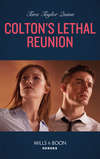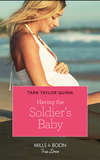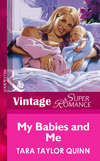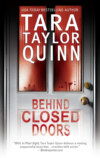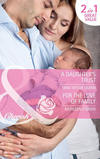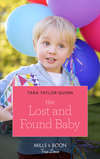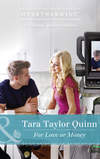Читать книгу: «The Good Girl»

The Good Girl
Tara Taylor Quinn

Contents
Title Page
Chapter One
Chapter Two
Chapter Three
Chapter Four
Chapter Five
Chapter Six
Chapter Seven
Copyright
Chapter One
Thirty-nine-year-old Bill Mendholson was sitting at his desk when the call came in. The late-fall storm that had been lingering just off the coast of Massachusetts, heading toward Comfort Cove, had made landfall. Because of the cliffs buffering the fishing town and tourist mecca, the moods of the mighty Atlantic didn’t usually pose a huge threat.
This time, people were already dead.
And of the six detectives in the fifty-officer-strong Comfort Cove police department, Bill was the only one in the office that Tuesday morning.
Detective Ramsey Miller, the closest thing he had to a partner, was out interviewing a family in Boston whose toddler had been missing for more than a decade. Miller needed a DNA sample to compare against a database created from items found in a newly arrested pedophile’s home. Miller was obsessed with finding every single victim, bringing the families justice. And with ruling out victims, as well.
Grabbing his coat, Bill bypassed the elevator, pushing through the door to the stairwell and trotted five floors down. Storms weren’t under their jurisdiction. Investigating dead bodies was. Crafty bad guys used natural disasters to cover up knocking off people they wanted gone. They robbed and pilfered, too, but those crimes would be handled by the street cops.
The air was eerily still and thick as he stepped out into the unseasonably warm October weather, not at all indicative of damaging winds traveling at hurricane speed with eighty-mile-an-hour gusts. But the near-darkness at ten o’clock on a Tuesday morning brought with it a sense of ominous foreboding. The humidity fogged his glasses and he wiped them as he walked.
Were the winds on their way? Or were they going to stick to the coast and give midtown a miss?
Pushing speed-dial buttons on his phone he reached his younger brother, Sean, and then older sister, Doris, making certain that they and their families were aware of the storm and taking cover. His parents lived in the house he’d grown up in on the Boston-facing side of town and were both working on computers in the basement office, engaged in online fundraising for their various charities.
Finished with the first three speed-dial recipients in less than two minutes, Bill quickly called the person he was most worried about. Mary Anderson’s office was close by—not in any more danger than the rest of them, but while she was fourth on his speed dial, she was first on his mind.
Mary—the woman whose kiss could take the edge off any bad day.
He was listening to her personal voice mail by the time he made it to his unmarked dark sedan, parked behind the Comfort Cove police department. In the car, he tried her office number. He was transferred to the receptionist at the non-profit social work agency where Mary, a case manager in family services, spent most of her life.
“She’s out visiting a new family, Detective Mendholson.”
She couldn’t give him any more information. Not who. Or why. He knew the ropes.
“She’s not down by the docks, is she?”
He’d started his car. Put it in gear.
“The family is not eligible for flood protection, sir,” the young woman told him. Which meant they lived down by the water. Her professionalism gave way to fear as she added, “Several of us told her not to go, but there was a baby involved and…”
“Call me as soon as you hear from her,” Bill said as the girl’s voice trailed off. “I’ll be on my cell.”
Dropping the phone on the seat beside him, Bill turned on his lights and his siren and sped out into the storm.
“Don’t be afraid.”
“I’m not.”
Mary Anderson maintained eye contact with the eleven-year-old boy, trying to stay calm as she mentally noted the filth in the two-room apartment, the stench surrounding them, the storm raging outside the cracked glass on the bare window. “I’m here to help you, Damon.”
She’d been sitting with the boy for over an hour. Attempting to gain his trust—to develop enough of a relationship to be able to help him.
“You ain’t. You don’t give a rat’s ass ‘bout me. You just want Kayla, and I ain’t lettin’ you have her.”
The baby, perhaps recognizing her name, poked a finger up her big brother’s nose. Damon didn’t seem to notice. Continuing to rock the two-month-old infant, the boy jutted out his chin and took a step out and away from Mary. Winds blew against the building. A loud crack sounded just outside the door.
Fear emanated from him as he stared her down.
“We have to get out of here, Damon. There’s a hurricane coming.”
“We don’t git hurricanes in October.”
Technically hurricane season didn’t end until December 1. But this storm wasn’t officially a hurricane.
“It’s a storm with winds as strong as a hurricane and it has the potential to do the same amount of damage.” She’d listened to the radio all the way over. Everyone thought the eye of the storm was going to pass them by.
In spite of the fact that the children had been alone, abandoned by their mother, for three days, the baby was clean. She looked well-fed. But they could all die if they didn’t get out of there.
“I ain’t goin’ and neither is Kayla. You’ll split us up and once she’s in the system she won’t have a chance in hell.”
He wasn’t completely right. Kayla, a near-newborn, would be adopted in a heartbeat. But Damon would probably never see her again. There was nothing she could do about that. They had to leave. Pulling out her cell she intended to call Mason, the cop who was waiting for her outside in the squad car, to ask for his help in forcibly removing the children.
She had no service.
And when she went to the front door to signal him, she quickly closed it again, as though protecting Damon from seeing the uprooted tree, the smashed car, was of utmost importance. The door latched, but she couldn’t lock it. There was a gaping hole where the lock had been.
Officer Mason might still be alive. And if he was, he surely needed medical assistance.
The street had been strangely empty. Where were the emergency personnel? Neighbors? She couldn’t leave the kids. And she couldn’t pick up Damon and the baby and carry them out.
Besides, where would they go? To the street? The officer in the car hadn’t been safe there.
“I’ll be right back,” she said to the boy, even though it was completely clear that he didn’t intend to go anywhere. Slipping out into the eerie grayness, she pushed forward against the wind and made her way down to the car. The tree lay diagonally across it. She hauled open the front passenger door. Mason, slumped against the steering wheel, was unresponsive. His legs were pinned by the tree. But he was breathing. Grabbing the microphone from the police radio, she gave the dispatcher a hurried update as to their location and his condition and then, knowing there was no more she could do, took one last look at the mercifully unconscious Officer Mason. She hollered at him to hang on and pushed her way back up to the front door.
Did folks uptown know how badly they were being hit? No one had expected the storm to reach shore.
Another burst of wind struck the side of the termite-infested wooden building as she leaned against the front door, forcing it to close, hoping the rickety latch would hold. Heart pounding, she found enough calm to say, “You can’t stay here, Damon. It’s not safe.” She tried to reason with the small-boned, tough-skinned boy whose drug-addict mother had been arrested that morning at the end of a three-day binge in a seedy motel. The place was in a neighboring village, and she’d been with a dock worker who was new to town. “You have no money. No way to buy food and diapers for Kayla.”
After her briefing on the case that morning, she’d opted to come in alone to get the boy. She’d thought keeping the police out of the picture was in Damon’s best interests. That was before the storm hit.
“We been doin’ just fine.” The boy’s look was hard with only the merest hint of uncertainty in those vivid blue eyes. Mary wondered how long he’d been virtually alone with the baby girl who appeared to be healthy—in spite of having been born to a user.
Wind hurled and glass broke. The window in the bedroom? Was the one in this room next? She had to get the kids to safety.
“Is there a basement in this place?”
“Just in the buildin’ next door.”
“Then we have to go there. Now.”
“Uh-uh.”
Damon had softened earlier when she’d asked him about Kayla. He liked to talk about his baby sister. While her gaze searched for any safe harbor at all, her mind scrambled for conversation that might lure the boy into a sense of cooperation.
“Your mom said Kayla’s had her checkups. Is that right?” If they didn’t leave immediately, the baby’s health didn’t matter. And neither did Damon’s. Or hers.
“‘Course. At the free clinic. I took her myself.”
And the county clinic hadn’t notified child Protective Services that a newborn was in the care of a young boy?
Damon said something else, but she couldn’t hear him as the storm’s intensity increased.
“Damon, we have to get out of here!” Fighting the instincts that told her to run, Mary listened to her training—to her heart—and knew that she would not desert these children. No matter what.
Which meant she might only have a few minutes to get through to the boy. Or die with them.
A burst of wind slammed the building so hard, she felt it shake. Diving for the boy, shielding the baby with her body, Mary wrapped her arms around Damon and shoved them toward the tiny bathroom in the center of the apartment. Pushing them into the tub, she climbed in with them, lay down and cradled the children against her. Kayla was crying. She couldn’t worry about that at the moment.
“I lied to the doctor,” Damon yelled, but she could hardly hear him.
“It’s okay,” Mary yelled back, praying silently for their protection. For the children, at least, to be saved.
“I told him Mom was sick with the flu. And when he said he had to see her, I called a girl I know next door to come and pretend to be her. She’s been going with me to all Kayla’s checkups.”
The storm raged. The baby cried. The boy yelled. And Mary thought about Bill Mendholson. She’d never told him she loved him.
She wished she had.
Бесплатный фрагмент закончился.
Начислим
+5
Покупайте книги и получайте бонусы в Литрес, Читай-городе и Буквоеде.
Участвовать в бонусной программе











